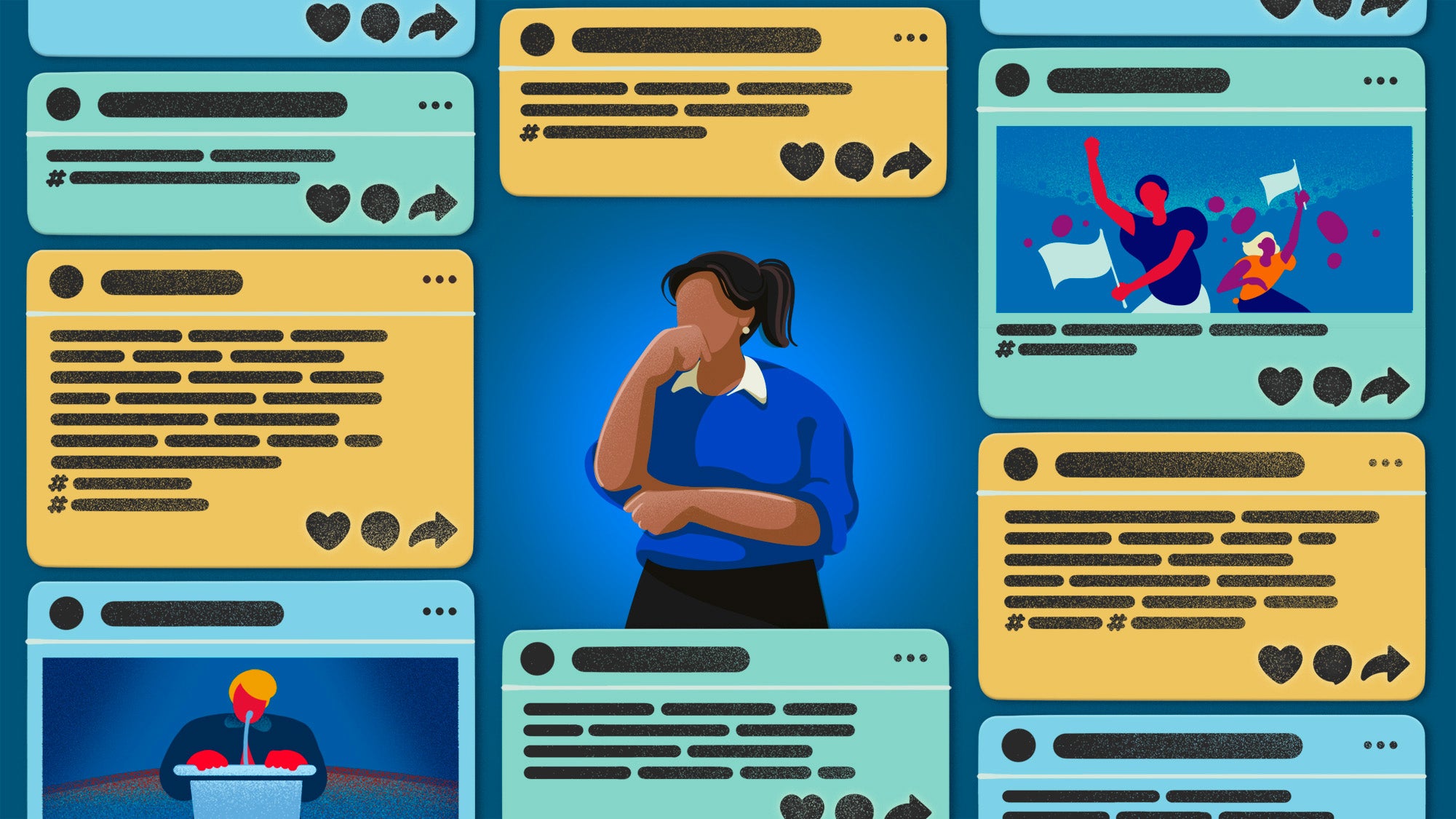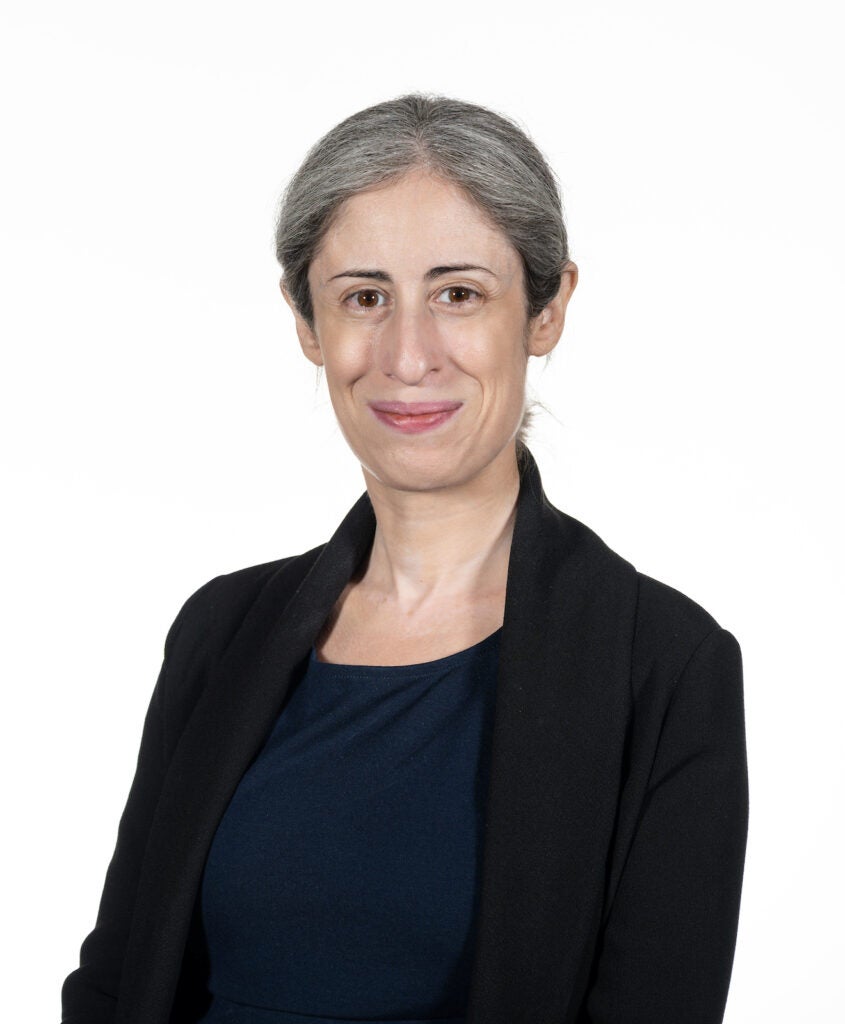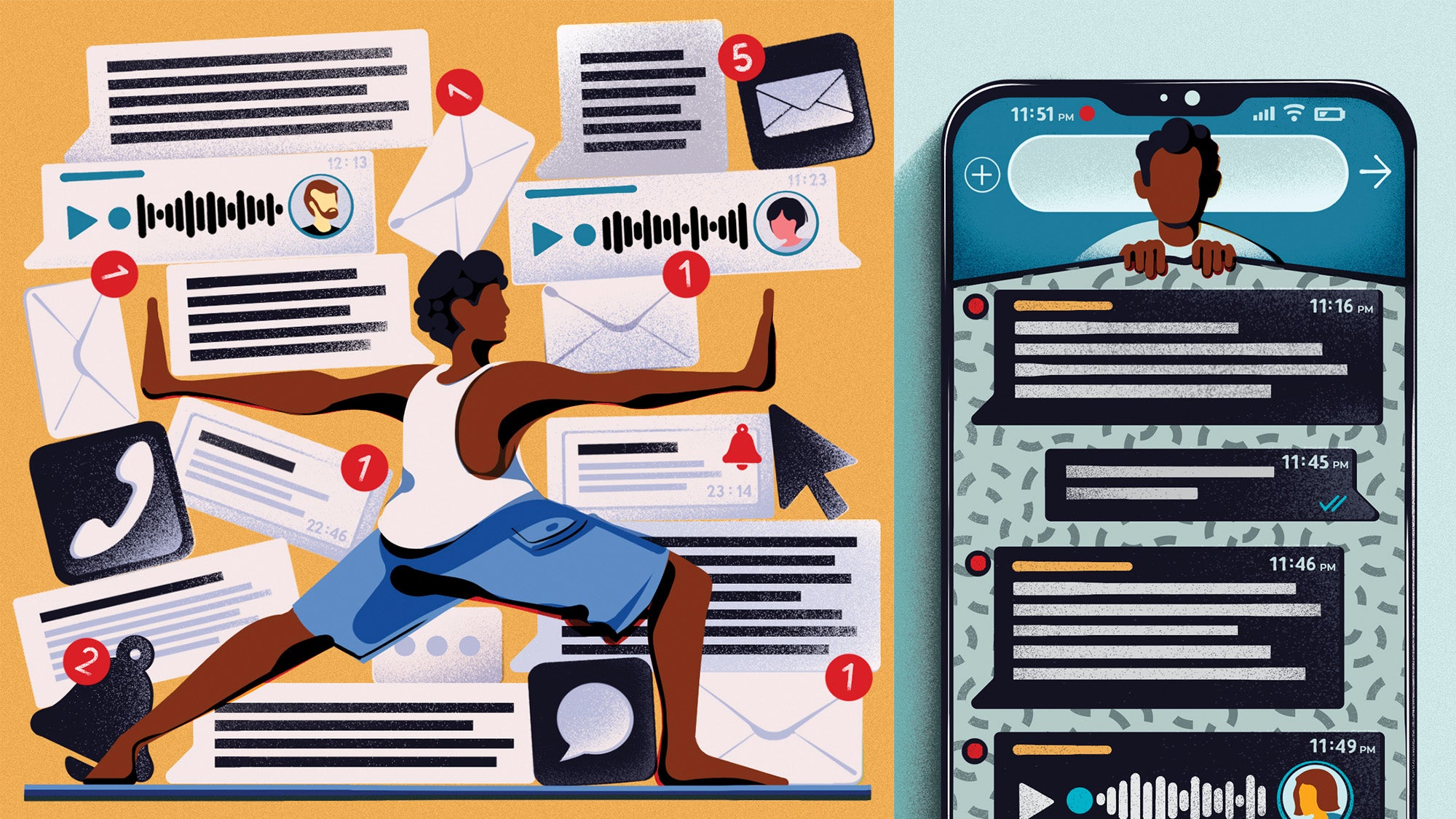Experts: Advice from One Hoya to Another
Sarah Jane Ho (C’07) and Teaching Professor Andrea Bonior provide expert advice on how to live a healthier, happier and more fulfilling life.
Read Full Story
Sharing knowledge is an integral part of both the academic experience and the journeys of personal growth that define our lives. In this series, we look to the diverse community of Hoyas for their expert advice.
Rebecca Sinderbrand (C’99), returned to the Hilltop in 2022 to lead the Journalism Program. Sinderbrand, a veteran news editor and journalist, most recently served as NBC News’ senior Washington editor. During her media career, Sinderbrand has covered six presidential campaigns and five White Houses, traveling to 42 states and half a dozen foreign countries. She has worked at a laundry list of news organizations, including The Washington Post, Politico and CNN.
With November fast approaching, we sat down with Sinderbrand to get her advice on how to navigate the media ecosystem during a presidential election.

Photo by Phil Humnicky.
Develop Greater Silo Awareness. By now, most people are aware that the news sources they select can shape — or distort — their perspective of reality in the political sphere and beyond. Every link you click, even accidentally; every social media headline you pause to read, even briefly; every news story you comment on or interact with, even by way of negative feedback — it all sends algorithmic signals that go on to shape the information flow you’re likely to encounter in the future.
The fact that your social media feeds may overwhelmingly center one campaign story may tell you little about its actual real-world pervasiveness — or how much your friends, family members and neighbors are encountering the same topic. Thanks to beta testing or updates, even two people reading the same story on the same website may be greeted by different headlines that elicit a different experience and reaction — and never realize that fact. In other words: Just because you haven’t encountered information doesn’t mean it hasn’t been reported, or isn’t important. It’s always worth seeking out a consciously diverse news diet — and an awareness of the fact that no matter the effort you invest, you can’t be certain that yours is complete.
The First Draft of History Is Rougher than Ever. Information is arriving faster each year — but our own human capacity to piece disparate facts into a coherent, complete whole hasn’t changed. If you encounter a complete news story based on an incomplete and ongoing situation — especially if the headline or frame confirms your priors or comports to your preferred worldview — wait a beat. If it’s an image or video that reaches you via any source that is new to you rather than a longtime purveyor of reliable information, even a seemingly trustworthy one: Don’t trust your lying eyes. We can all consume facts piecemeal, but it generally pays to hold off on drawing conclusions.
Polls Are Snapshots – Not Predictions. Polls are a sort of scientific art — and there are limits as to what even the best of them can tell you. A good pollster will have the desire to police question wording and order for any detail that could elicit distorting data; the resources to connect with increasingly elusive blocs of the electorate; the knowledge to make some educated assumptions about the current shape of the electorate; and, frankly, just a little bit of pure luck to boot. One additional presidential campaign year caveat is that the ubiquitous national polls are far less valuable than the (far fewer) surveys of the handful of states that are likely to decide the outcome. An even bigger asterisk is that any survey, at its best, may accurately capture public sentiment — at least, the views of those individuals in any demographic category who choose to engage and offer their views — over a defined window of time, usually a few days, that represent the past tense even at the moment the results are released. A poll isn’t meant to project future outcomes — just to capture one possible assessment of current sentiment. We still have a few dozen news cycle lifetimes left to go before The Only Poll That Really Matters.
For Editorial Decision-Making, Process Matters. Methods of information-sharing have become more democratic: It can be difficult to quickly discern whether an Instagram post or digital article has emerged from one of the largest, most established professional news organizations in the world, or a lone poster publishing from their basement. The distinguishing factor is the sausage-making you can’t see — the editorial vetting and decision-making involved in unearthing, curating and producing that output — and this is where a little due diligence can provide a baseline sense of confidence, or a warning signal to steer clear. Have those responsible for making difficult decisions laid out their general standards around sourcing, conflicts of interest and other ethical and coverage questions? On those occasions when errors have occurred, have they been publicly transparent about correcting those mistakes, investigating how they occurred and taking action to prevent a recurrence of the problem? If you can’t answer those questions in the affirmative about any news source you encounter, then treat their product with extreme caution.
The People Behind the News Matter. The reliability of the news you consume depends, at its most basic level, on the judgment and expertise of the individuals who gather it in the first place. Humans are imperfect, and even the most battle-tested and well-meaning reporter can have a bad day on the beat — but, speaking as a newsroom veteran, track records do matter. In a profession where your reputation is only as solid as the stories you report, people who put their names on an article or their faces on the air have a vested interest in getting things right — and the ones who break news year after year for organizations with the highest public standards for accuracy act as a critical line of defense in the battle against misinformation and disinformation.
During the Home Stretch, Log Off. Speaking as a longtime political journalist, this advice is painful, but essential. It’s vital to stay educated and informed — and to support objective journalism (a free press isn’t free!). But a news diet is like any other kind, and can benefit from many of the same principles, such as: all things in moderation, and make sure you stop consuming well before bedtime. The human mind wasn’t designed to stay immersed in a fast-moving, high-stakes, high-emotion story like the presidential campaign 24 hours a day, seven days a week. This is true even when doing just that is your job! If it’s not, consider limiting your consumption to a few designated windows of the day — and always, always, steer clear of the comments.
Illustration by Adrià Voltà.

Sarah Jane Ho (C’07) and Teaching Professor Andrea Bonior provide expert advice on how to live a healthier, happier and more fulfilling life.
Read Full Story